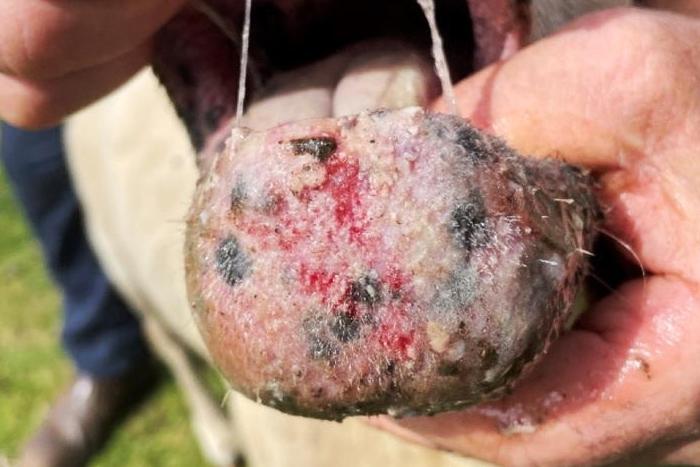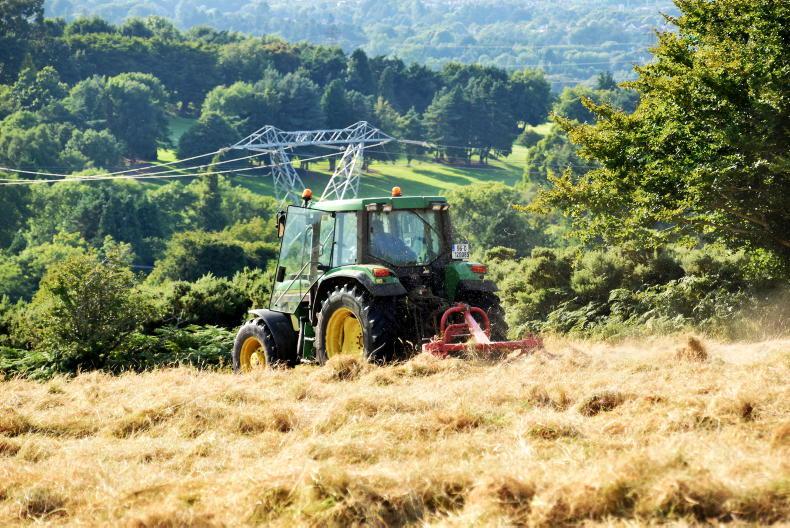A case of classic BSE has been discovered in an animal that died on a farm in the southwest of England.
It was picked up through a routine surveillance test and movement restrictions have been introduced in the area while investigations are ongoing to identify the origin of the disease.
England and Wales had been a controlled-risk BSE area, as defined by OIE, the global animal health organisation.
Classic and atypical BSE
There are two types of BSE, classic and atypical.
Classic BSE has been linked to animal feed of recycled animal byproduct through meat and bone meal, with infection transmitted from the brain of infected animals.
BSE controls introduced in meat factories at the height of the BSE issue in the late 1990s in the UK and wider EU from 2000 have meant that the animal brain and all parts linked to the brain through the spinal cord are removed and destroyed.
Classic BSE has now all but disappeared, with the last case in Ireland discovered in 2015. There have been five such cases across the UK since 2014, all in older animals that have died.
Atypical BSE, on the other hand, is completely sporadic, with no particular explanation for its occurrence. It is believed by the OIE to exist in all cattle herds and happens spontaneously. Brazil has been in the news recently for discovering two cases of atypical BSE and one was found in Ireland in May 2020.
Impact on BSE status
Classic and atypical BSE are treated differently by OIE in calculating a country’s BSE risk status.
Having a classic case moves a country from negligible-risk BSE status to controlled-risk status whereas an atypical case has no impact.
Therefore, Ireland lost its negligible-risk status with the discovery of a BSE case in 2015. This status was restored earlier this year as last year’s atypical case had no impact.
Trade implications
Most countries that have lifted the export ban on beef from the EU and UK don’t introduce restrictions following an isolated case.
The exception is China, which has a requirement that it must be notified if a case is found and exports are suspended immediately pending investigation.
This happened to Ireland in May 2020 and despite in-depth investigation, the green light to resume has not yet been received.
The same has applied to Brazil over the past two weeks and, given China’s dependency on Brazil for beef supply, Irish farmers and exporters are watching if Brazil can get a fast pass for resumption of beef exports and if Ireland could get cleared to resume at the same time.
Read more
Brazilian BSE can reopen door for Irish beef in China
Brazil suspends beef exports to China
Atypical BSE case confirmed by laboratory test
Impact of a confirmed BSE case on risk status
A case of classic BSE has been discovered in an animal that died on a farm in the southwest of England.
It was picked up through a routine surveillance test and movement restrictions have been introduced in the area while investigations are ongoing to identify the origin of the disease.
England and Wales had been a controlled-risk BSE area, as defined by OIE, the global animal health organisation.
Classic and atypical BSE
There are two types of BSE, classic and atypical.
Classic BSE has been linked to animal feed of recycled animal byproduct through meat and bone meal, with infection transmitted from the brain of infected animals.
BSE controls introduced in meat factories at the height of the BSE issue in the late 1990s in the UK and wider EU from 2000 have meant that the animal brain and all parts linked to the brain through the spinal cord are removed and destroyed.
Classic BSE has now all but disappeared, with the last case in Ireland discovered in 2015. There have been five such cases across the UK since 2014, all in older animals that have died.
Atypical BSE, on the other hand, is completely sporadic, with no particular explanation for its occurrence. It is believed by the OIE to exist in all cattle herds and happens spontaneously. Brazil has been in the news recently for discovering two cases of atypical BSE and one was found in Ireland in May 2020.
Impact on BSE status
Classic and atypical BSE are treated differently by OIE in calculating a country’s BSE risk status.
Having a classic case moves a country from negligible-risk BSE status to controlled-risk status whereas an atypical case has no impact.
Therefore, Ireland lost its negligible-risk status with the discovery of a BSE case in 2015. This status was restored earlier this year as last year’s atypical case had no impact.
Trade implications
Most countries that have lifted the export ban on beef from the EU and UK don’t introduce restrictions following an isolated case.
The exception is China, which has a requirement that it must be notified if a case is found and exports are suspended immediately pending investigation.
This happened to Ireland in May 2020 and despite in-depth investigation, the green light to resume has not yet been received.
The same has applied to Brazil over the past two weeks and, given China’s dependency on Brazil for beef supply, Irish farmers and exporters are watching if Brazil can get a fast pass for resumption of beef exports and if Ireland could get cleared to resume at the same time.
Read more
Brazilian BSE can reopen door for Irish beef in China
Brazil suspends beef exports to China
Atypical BSE case confirmed by laboratory test
Impact of a confirmed BSE case on risk status









SHARING OPTIONS